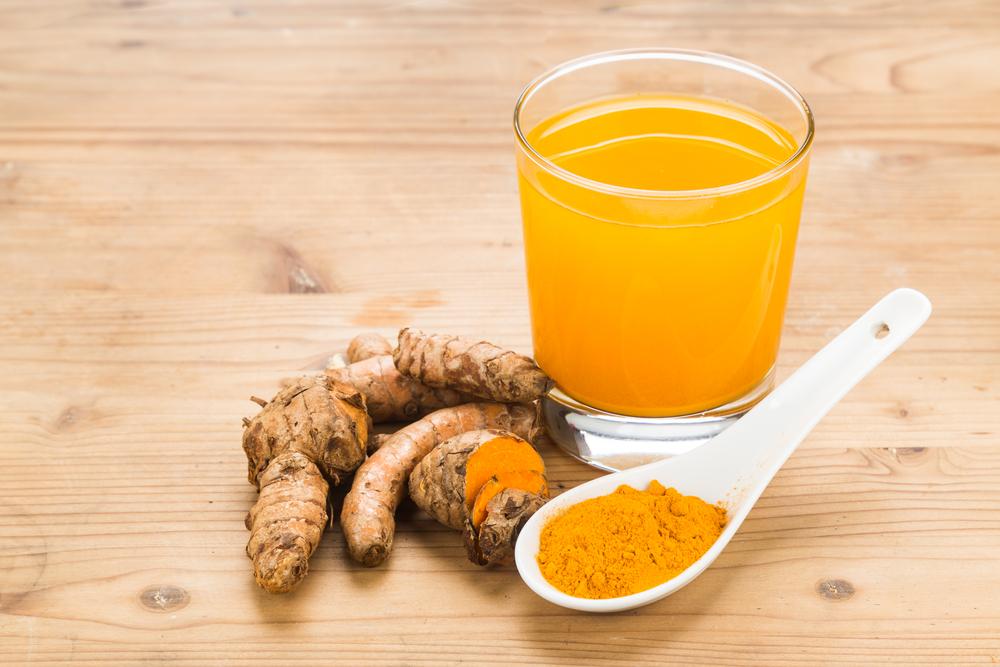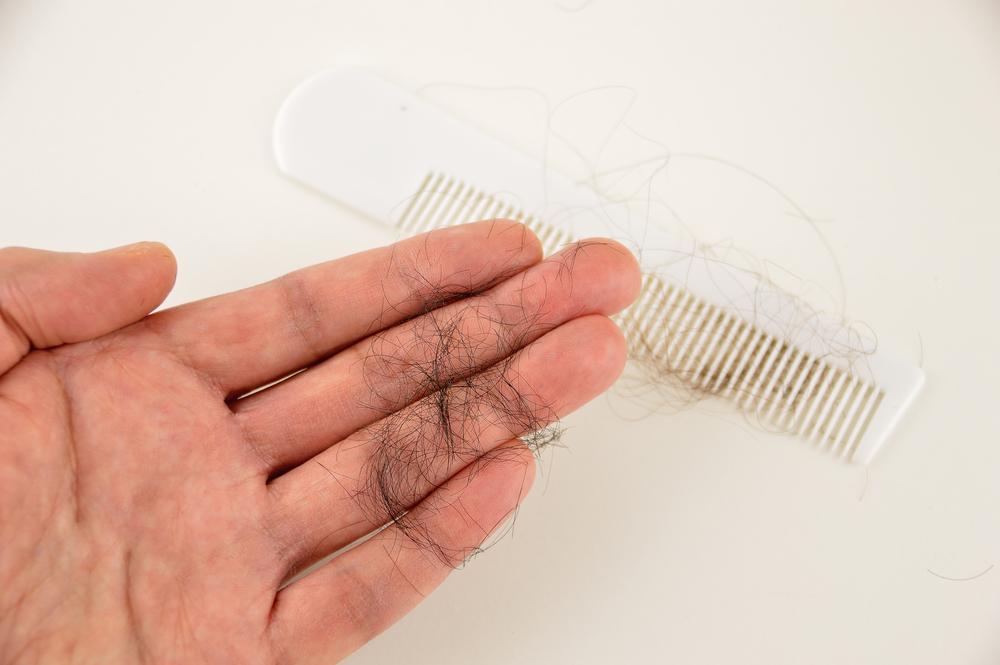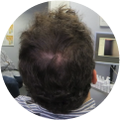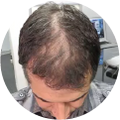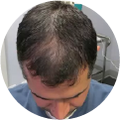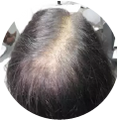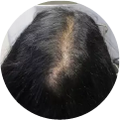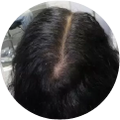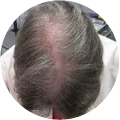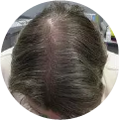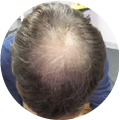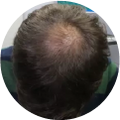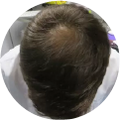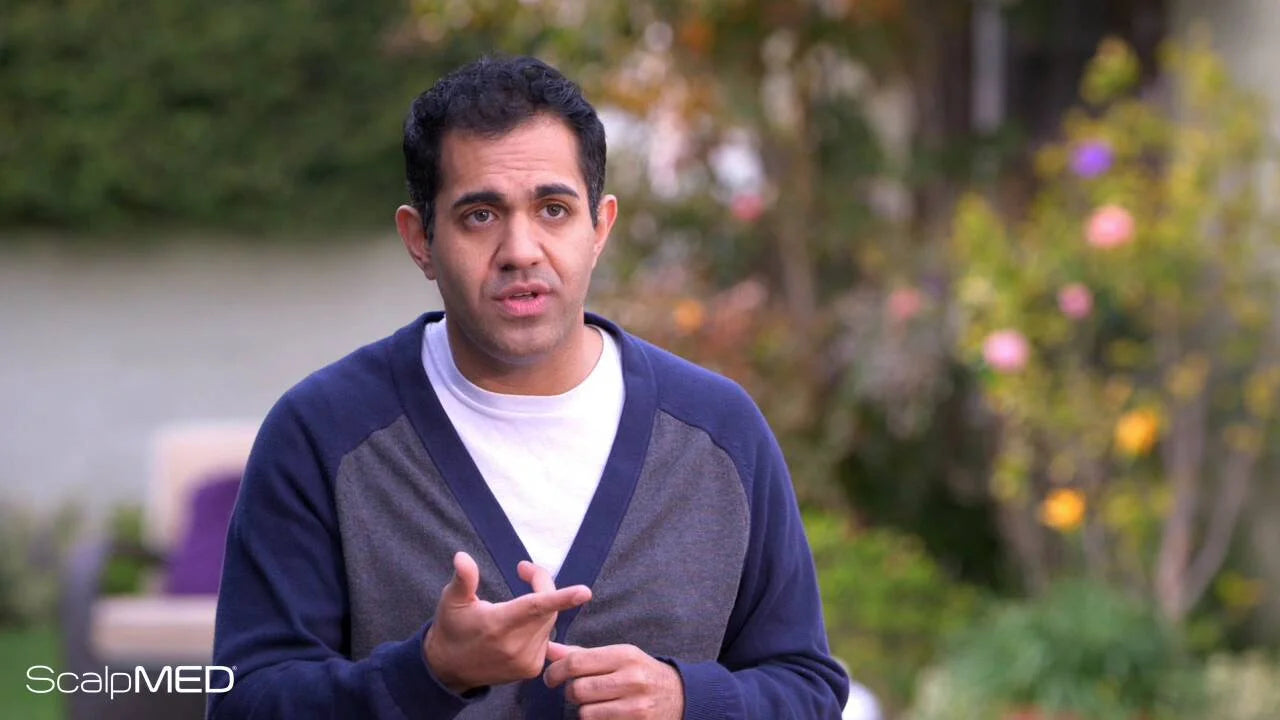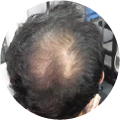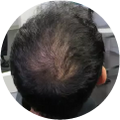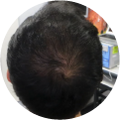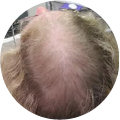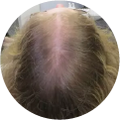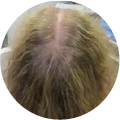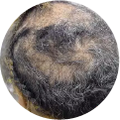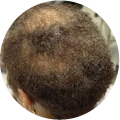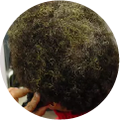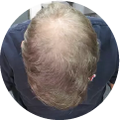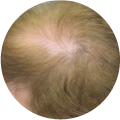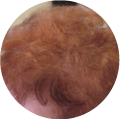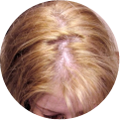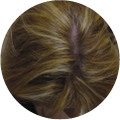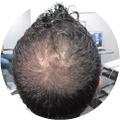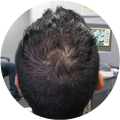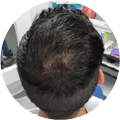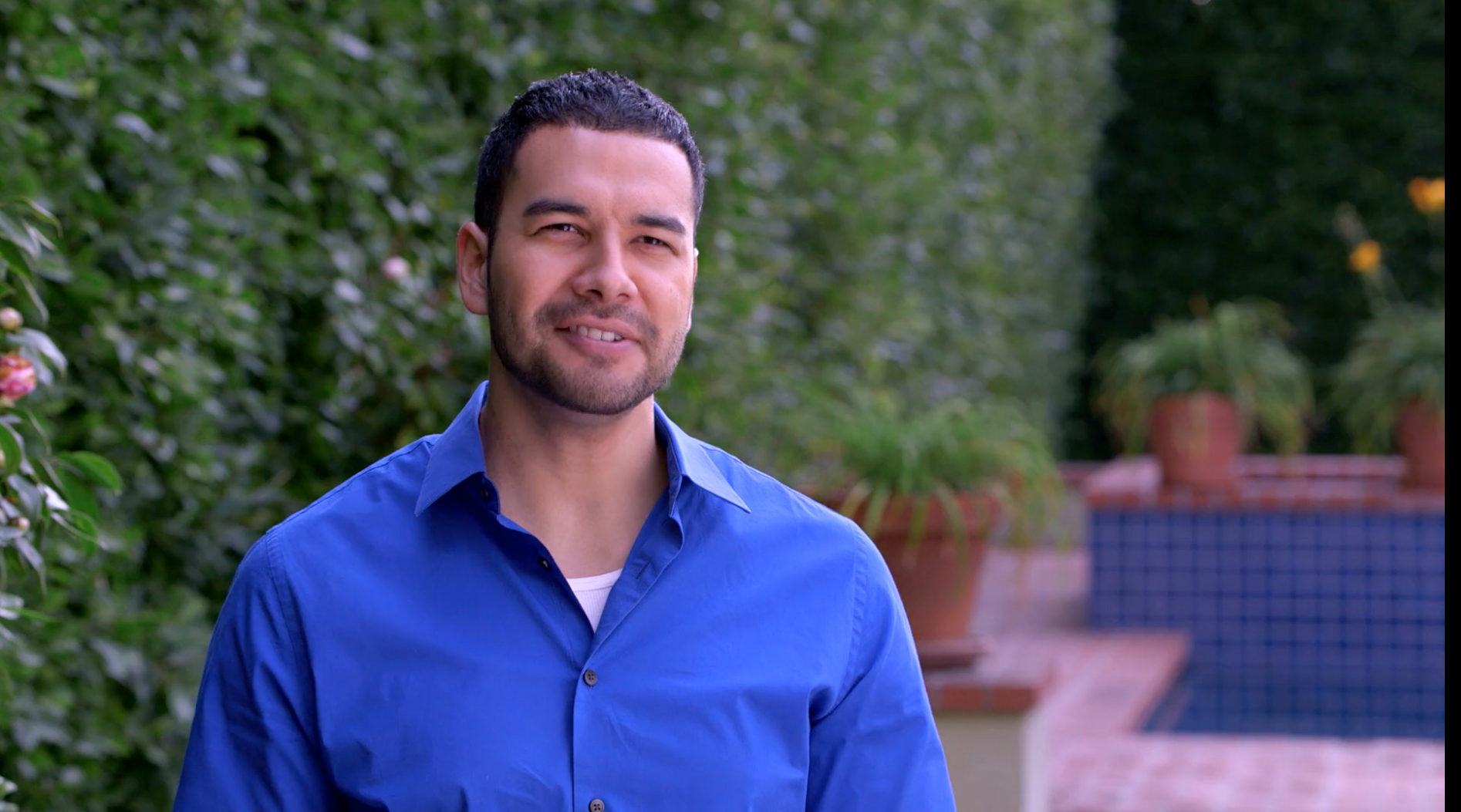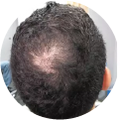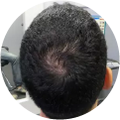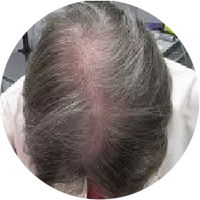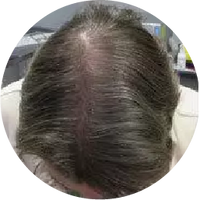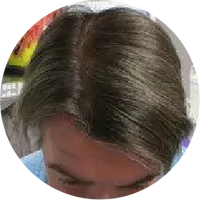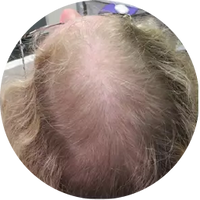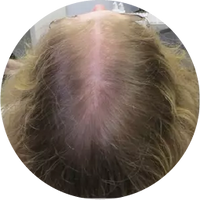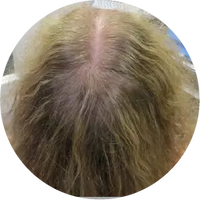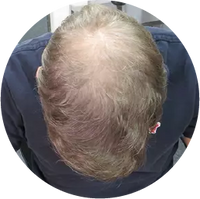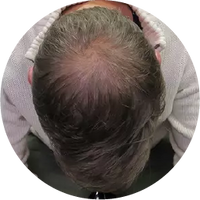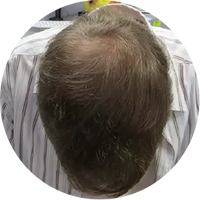
Biotin is often mentioned when discussing hair growth, but many people do not understand how Biotin truly works, its benefits, or the best ways to maximize their Biotin intake and promote healthy hair growth. When analyzing the variety of Biotin products on the market, you may be asking yourself whether you should use Biotin hair products or take Biotin pills for hair growth? You are not alone in being perplexed by the sheer volume of products containing Biotin designed specifically to promote hair growth. To help you choose the best way to integrate Biotin into your hair care routine, we have put together a comprehensive guide of what Biotin is, how it works, and various methods you can use to begin your Biotin hair growth journey.

What is Biotin?
When analyzing any new product to integrate into your routine, it is necessary to conduct preliminary research to understand the product’s composition, suggested dosage, and potential benefits and side effects before implementing it into your daily routine. Biotin is a water-soluble B-Vitamin that is often referred to as Vitamin H or B7. Biotin is an integral component to possessing a healthy metabolism that functions efficiently and Biotin is vital for creating essential enzymes. Biotin is processed by the body and used as energy, making it an energy-boosting element. Biotin’s composition has been shown to aid many different processes and parts of the body, including the digestive tract, metabolism, nerves, skin, hair growth, and cells. In addition to these benefits, Biotin also transports Carbon Dioxide from your body’s cells. Biotin deficiency has been linked to tiredness, sluggishness, mental confusion, alopecia, dermatitis, loss of pigment in the hair, or decreased appetite. Biotin deficiency most often occurs in people suffering from metabolic disorders, elderly people, athletes, people with epilepsy, and those who have had their gastrointestinal tract removed. Biotin deficiency is rare, but it is important to understand the markers for if those symptoms should ever arise. Pregnant or nursing mothers also sometimes experience decreased levels of Biotin due to the increased demand for the vitamin in their bodies. With this understanding, it is now important to examine how Biotin specifically promotes hair growth and overall hair health.
Does Biotin Promote Healthy Hair Growth From The Scalp?
The short answer to this question is “Yes,” but there is significant scientific backing for this conclusion. Biotin is an asset to healthy hair because of its ability to metabolize fatty acids and amino acids. Hair strands are primarily comprised of Keratin, which is a protein. Biotin is known to be vital to metabolizing amino acids, which are the compounds that form all protein. This makes Biotin capable of producing hair that is shiny, healthy, and growing. In addition to this function, Biotin is also a B-complex Vitamin, which makes it capable of nourishing hair follicles.
What is the Proper Dose of Biotin?
Below are basic recommended dosages of Biotin broken down by age range. These numbers are merely a starting point. Before beginning a regimen of taking Biotin, it is important to consult a medical professional to determine the right dosage for your age, height, weight, lifestyle, and metabolic processes.
| Age | Dosage |
| 9-13 years | 20 mcg |
| 14-18 years | 25 mcg |
| Adults | 30 mcg |
| Pregnant women | 30 mcg |
| Breastfeeding women | 35 mcg |
Types of Biotin Supplements Available:
Biotin comes in many forms to allows individuals to tailor which method works best for their lifestyle and unique biological composition. While some may find it easier to take a daily supplement enriched with Biotin, others may prefer to nourish their hair directly with Biotin infused shampoo. Below are a few of the types of Biotin supplements available on the market to boost your Biotin levels and keep your hair growing, strong, and beautiful.
- Pills:Biotin capsules for hair are the most popular form of Biotin supplement. There are numerous brands and dosages available to make it easy for you to integrate into your daily routine. There are many forms of Biotin hair growth pills, ranging from soft gel capsules to hard gel pills to liquid capsules to chewable tablets. In addition to these various types of pills available, there are also different types of Biotin hair growth pills to choose from. While some may prefer to take a daily Biotin supplement in addition to their multivitamin, others may want a multivitamin with a higher concentration of Biotin to eliminate the need for another pill. However, these are not the only options, there are also many different types of Hair, Skin, and Nail supplements available that contain high concentrations of Biotin, as well as other vitamins and nutrients known to promote healthy hair, skin, and nails. No matter which route you choose, it is vital to analyze all available options, determine the positive and negative aspects of each, and then make a well-informed decision about what will best benefit your body and fit within your lifestyle.
- Shampoo:In recent years, the number of available shampoo products enriched with Biotin has surged as the benefits of Biotin have become more well-known. Shampoos that contain Biotin provide your hair with essential amino acids, which promote scalp circulation and repair damaged hair follicles. Biotin enriched shampoo is a great way to directly fuse Biotin into your hair follicles and allow your body to get the boost of amino acids it needs to form healthy, strong locks.
- Oil:Biotin supplements are also available in an oil form as well. This oil can be directly applied to the scalp and then massaged into the skin and hair follicles to help promote blood circulation to the scalp, which stimulates hair growth. In addition, concentrated Biotin oil infuses amino acids into hair follicles and its oily texture helps to moisturize and strengthen the hair.
Biotin Rich Food Sources
If you are looking to add more Biotin into your everyday routine, there is more you can do than integrating supplements. Many foods that benefit your hair are rich in naturally occurring Biotin, making them ideal to integrate into a healthy diet that is focused on promoting healthy hair growth. However, this does not mean that all sources of Biotin are created equal. Biotin can be found in two forms in living cells: protein-bound and free. Protein-bound Biotin is bound to protein and is most commonly found in animal and bacteria cells. On the other hand, free Biotin is not bound to protein and is much more common in plants. The human body utilizes both forms of Biotin, but free Biotin is easier for the body to process and use quickly because it is immediately bioavailable. When your body encounters protein-bound Biotin, it must work to split the protein and Biotin apart before it can harness the benefits of the Biotin. For this reason, it is commonly believed that plant-based forms of free Biotin are a more beneficial option that protein-bound Biotin. Below is a list of some of the top foods that are rich in Biotin and will help give you the extra boost you need to get the hair you desire.
- Avocados: Avocados have recently gained in popularity due to the knowledge that their high concentration of fat is “good” fat, rather than “bad” fat, as was once widely believed. In addition to their numerous other beneficial attributes, avocados are a great source of Biotin and boast 2-6 micrograms per avocado. Avocados also contain high levels of beta-carotene, Vitamin B, and Vitamin C, all of which play important roles in the hair growth process. Vitamin C is an extremely powerful antioxidant and is essential in the production of skin collagen, as well as protecting Vitamin A and E from the harmful effects of free radicals. Avocados contain a significant amount of Vitamin E, which ensures that each cell is able to get the oxygen it needs. Vitamin E also strengthens capillary walls, which aids in promoting scalp circulation and thereby stimulates hair growth.
- Legumes:Legumes are a wonderful source of Biotin, in addition to being a great source of folic acid and aiding in healthy digestive processes. Green peas are one of the best sources of Biotin, boasting an impressive 40 micrograms of Biotin for every 100 grams of fresh peas and 70 micrograms when in a dried form. Lentils are another beneficial form of Biotin, with an additional 40 micrograms of Biotin.
- Eggs: Eggs boost hair health and prevent hair loss because they are rich in protein, as well as Biotin. Protein is also a main component of eggs and is one of the primary building blocks that form hair follicles. By regularly consuming eggs, you will boost the amount of protein your hair receives, which results in increased hair growth and improved hair quality. Diets that contain low levels of protein cause the body to detract protein from stores that are meant to nourish hair follicles. This can result in hair that lacks shine, is brittle, and stagnant in hair growth. By maintaining a diet that contains high levels of protein, you can prevent your body from tapping into the hair’s protein stores, thereby ensuring it gets the protein it needs to form strong, healthy hair follicles.
- Almonds:Almonds possess a high concentration of Biotin, making them an ideal snack to consume when attempting to stimulate healthy hair growth. What many do not realize is that a handful of almonds each day can also impart important benefits upon hair health. Almonds possess high levels of Vitamin E and Magnesium, which have been shown to promote hair growth, increase hair thickness, and to help improve overall body function. Almonds also contain monounsaturated fats, which improve hair, skin, and nail health.
- Swiss Chard:Swiss chard is loaded with fiber, Magnesium, Vitamin A, and Vitamin C. In addition to all of these beneficial vitamins and nutrients, swiss chard is among the most Biotin rich foods available. Swiss chard is an easy addition to your daily routine as it can be steamed, sautéed, boiled, fried, or baked.
- Cauliflower: Cauliflower is a cruciferous vegetable that is known for its ability to remove toxins from the liver and its high concentration of essential nutrients. Among the nutrients cauliflower possesses is Biotin. One serving of cauliflower consumed accounts for five percent of the average daily Biotin recommendation. Not only is cauliflower extremely rich with Biotin, is also contains high levels of Vitamin C and many other beneficial compounds. Cauliflower is relatively bland in flavor, making it an easy addition to any meal and versatile in how it can be prepared and seasoned.
- Sunflower Seeds:Sunflower seeds are not only a delicious snack, they are also extremely healthy and nutrient rich. Sunflower seeds contain Iron, Calcium, Vitamin E, Vitamin B, Magnesium, and Biotin, all of which offer different benefits that help promote healthy hair growth.
- Cold Water Fish: Cold water fish is one of the best sources of naturally occurring Biotin available. To add a quick boost of Biotin to your diet, integrate meals that incorporate sardines, tuna, salmon, trout, and herring. Not only are cold water fish rich in Biotin, they also possess high levels of Omega-3 fatty acids, which reduce the concentration of fat in the arteries, improve blood circulation, reduce bad cholesterol levels, and improve hair texture and strength. Because cold water fish are one of the most Biotin rich food sources available, they are an ideal food to consume when attempting to promote healthy hair growth.
- Spinach: Spinach possesses a high concentration of both Biotin and protein, which are essential to healthy hair growth. In addition, spinach is extremely rich in Iron and sebum. Sebum acts as a natural conditioner that nourishes the hair and scalp while promoting moisture retention. Spinach also contains high levels of Magnesium, Potassium, Calcium, Iron, Vitamin B, Folate, Vitamin E, and Omega-3 Acids. Spinach is an easy addition to your diet as it can be cooked in a number of ways to add nutrients to a meal, can be eaten raw as a salad, or can be added to a smoothie to give a nutritional boost.


